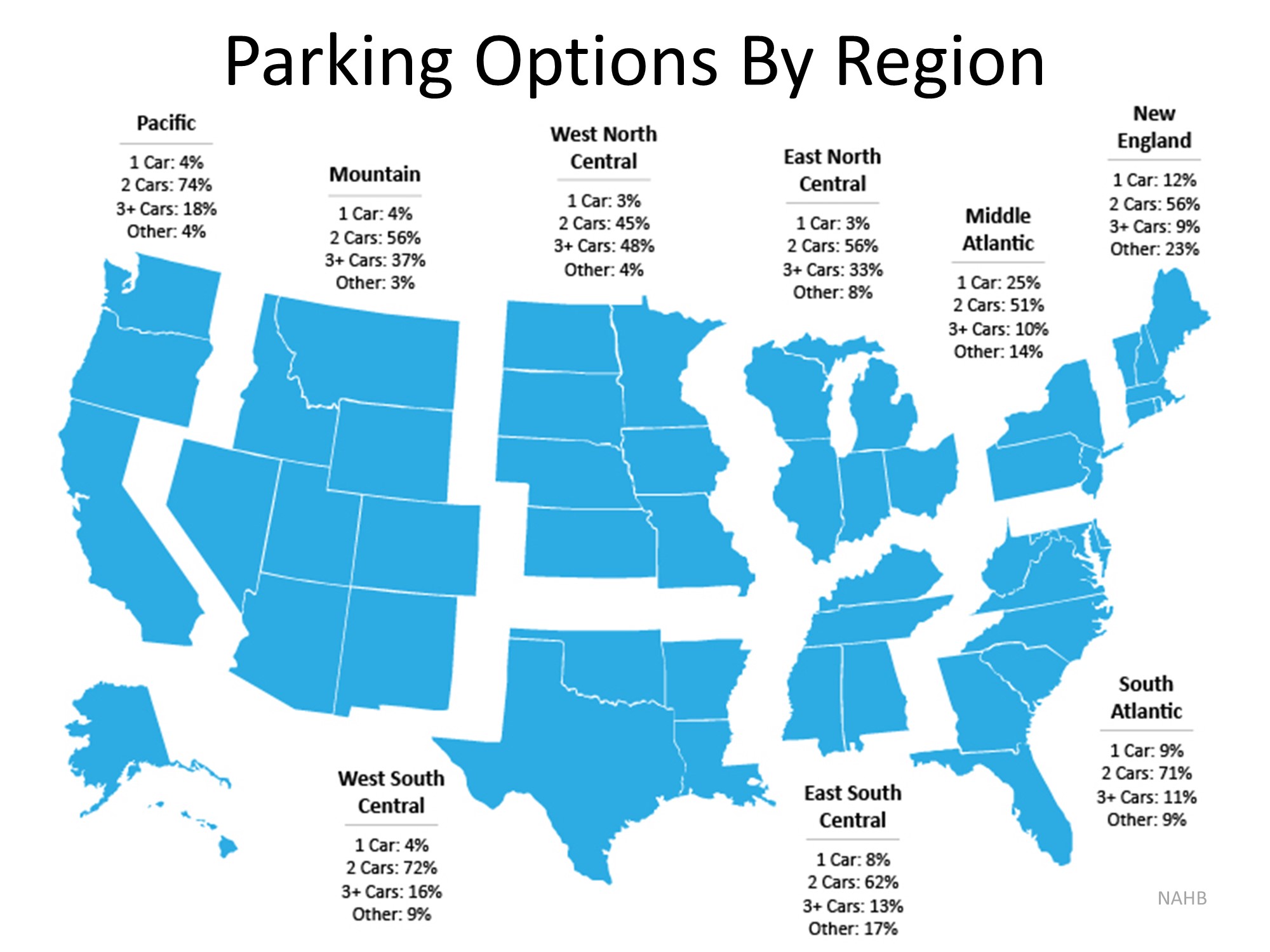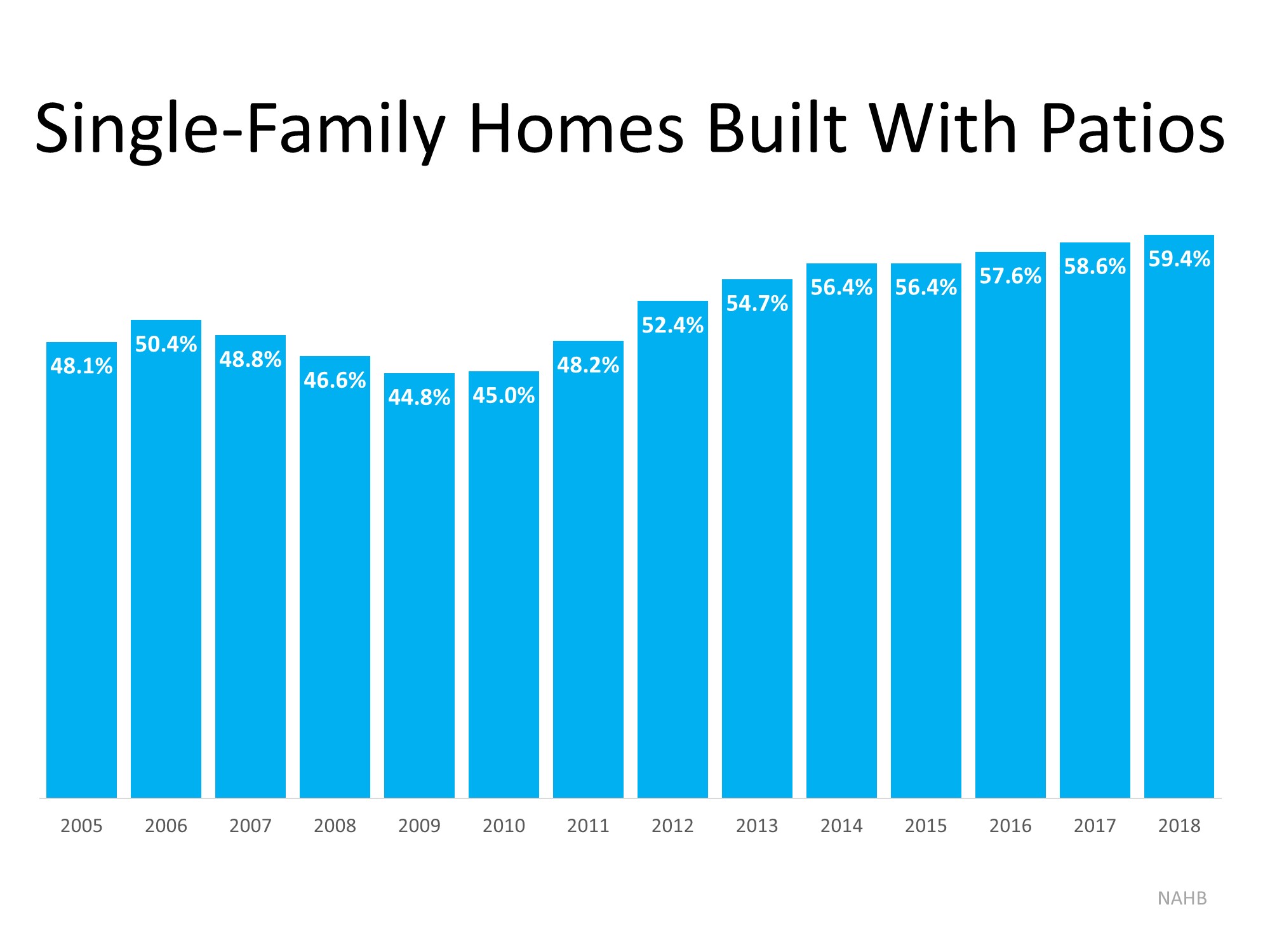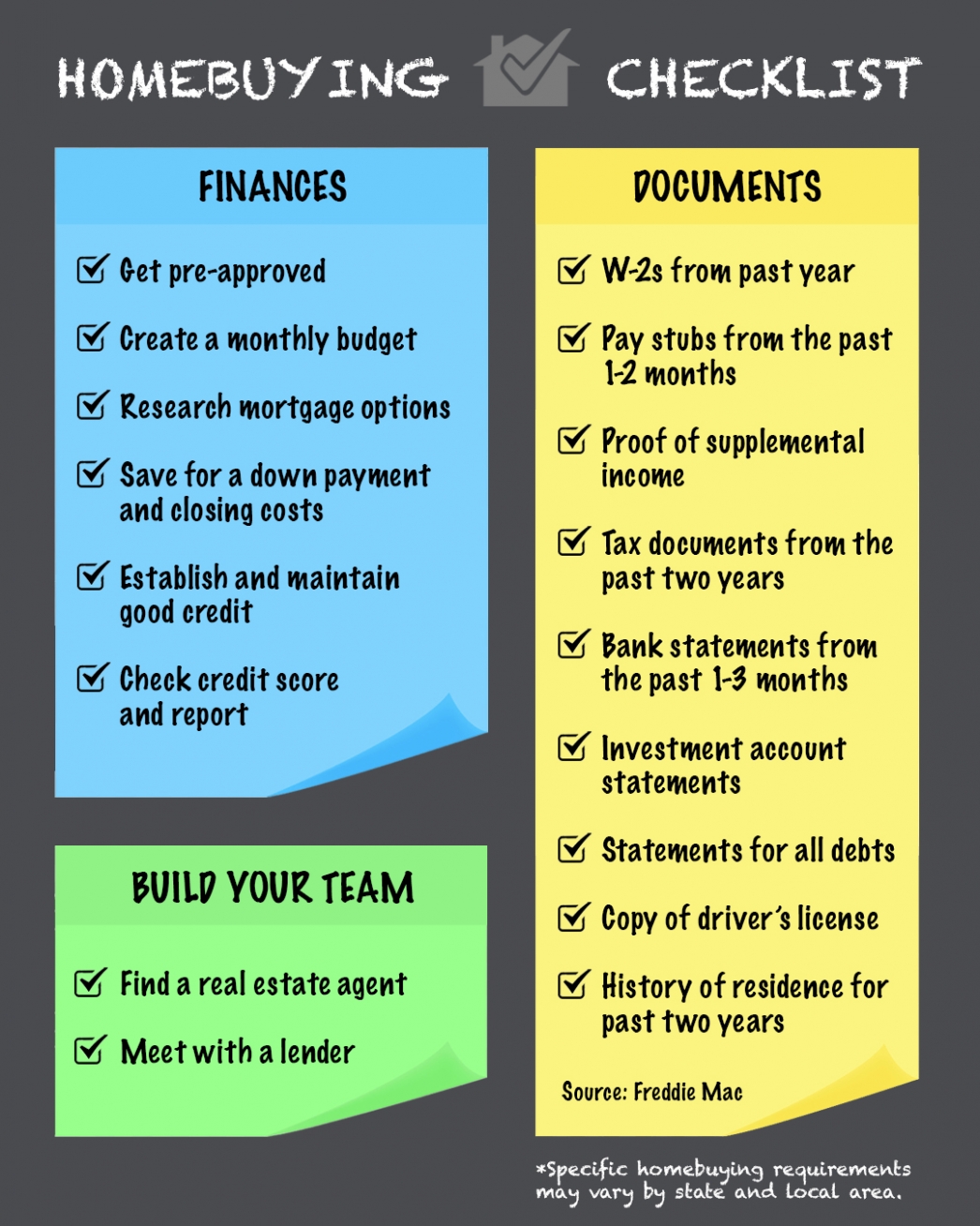Don’t Let Frightening Headlines Scare You


There’s a lot of anxiety right now regarding the coronavirus pandemic. The health situation must be addressed quickly, and many are concerned about the impact on the economy as well.
Amidst all this anxiety, anyone with a megaphone – from the mainstream media to a lone blogger – has realized that bad news sells. Unfortunately, we will continue to see a rash of horrifying headlines over the next few months. Let’s make sure we aren’t paralyzed by a headline before we get the full story.
When it comes to the health issue, you should look to the Centers for Disease Control and Prevention (CDC) or the World Health Organization (WHO) for the most reliable information.
Finding reliable resources with information on the economic impact of the virus is more difficult. For this reason, it’s important to shed some light on the situation. There are already alarmist headlines starting to appear. Here are two such examples surfacing this week.
1. Goldman Sachs Forecasts the Largest Drop in GDP in Almost 100 Years
It sounds like Armageddon. Though the headline is true, it doesn’t reflect the full essence of the Goldman Sachs forecast. The projection is actually that we’ll have a tough first half of the year, but the economy will bounce back nicely in the second half; GDP will be up 12% in the third quarter and up another 10% in the fourth.
This aligns with research from John Burns Consulting involving pandemics, the economy, and home values. They concluded:
“Historical analysis showed us that pandemics are usually V-shaped (sharp recessions that recover quickly enough to provide little damage to home prices), and some very cutting-edge search engine analysis by our Information Management team showed the current slowdown is playing out similarly thus far.”
The economy will suffer for the next few months, but then it will recover. That’s certainly not Armageddon.
2. Fed President Predicts 30% Unemployment!
That statement was made by James Bullard, President of the Federal Reserve Bank of St. Louis. What Bullard actually said was it “could” reach 30%. But let’s look at what else he said in the same Bloomberg News interview:
“This is a planned, organized partial shutdown of the U.S. economy in the second quarter,” Bullard said. “The overall goal is to keep everyone, households and businesses, whole” with government support.
According to Bloomberg, he also went on to say:
“I would see the third quarter as a transitional quarter” with the fourth quarter and first quarter next year as “quite robust” as Americans make up for lost spending. “Those quarters might be boom quarters,” he said.
Again, Bullard agrees we will have a tough first half and rebound quickly.
Bottom Line
There’s a lot of misinformation out there. If you want the best advice on what’s happening in the current housing market, let’s talk today.
Equity Gain Growing in Nearly Every State


Rising home prices have been in the news a lot lately, and much of the focus is on whether they’re accelerating too quickly and how sustainable the growth in prices really is. One of the often-overlooked benefits of rising prices, however, is the impact they have on a homeowner’s equity position.
Home equity is defined as the difference between a home’s fair market value and the outstanding balance of all liens on the property. While homeowners pay down their mortgages, the amount of equity they have in their homes climbs each time the value increases.
Today, the number of homeowners that currently have significant equity in their homes is growing. According to the Census Bureau, 38% of all homes in the country are mortgage-free. In a home equity study, ATTOM Data Solutions revealed that of the 54.5 million homes with a mortgage, 26.7% of them have at least 50% equity. That number has been increasing over the last eight years.
CoreLogic also notes:
“…the average homeowner gained approximately $5,300 in equity during the past year.”
The map below shows a breakdown of the increasing equity gain across the country, painting a clear picture that home equity is growing in nearly every state.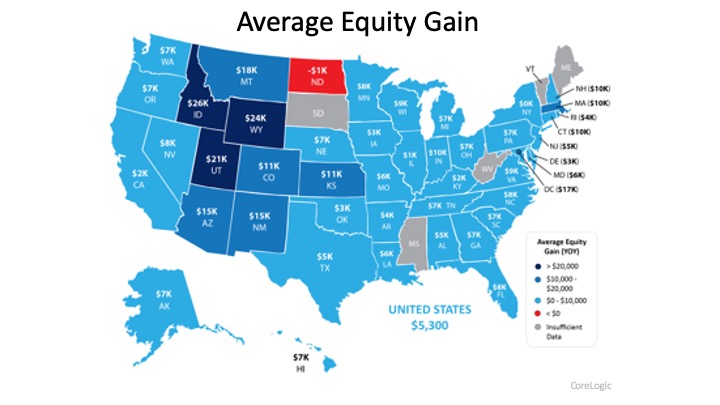
Bottom Line
This may be the year to take advantage of your home equity by applying it forward, either as you downsize or as you move up to a new home.
Why You Shouldn’t “For Sale By Owner”


Rising home prices coupled with the current inventory in today’s market may cause some homeowners to consider selling their homes on their own (known in the industry as a For Sale By Owner). However, a FSBO might be hard to execute well for the vast majority of sellers.
Here are the top 5 reasons not to FSBO:
1. Online Strategy for Prospective Purchasers
Studies have shown that 93% of buyers search online for a home. That’s a pretty staggering number! Most real estate agents have an Internet strategy to promote the sale of your home. Do you?
2. Results Come from the Internet
According to NAR, here’s where buyers found the homes they actually purchased:
- 55% on the Internet
- 28% from a Real Estate Agent
- 10% Other
- 6% from a Yard Sign
- 1% from Newspapers
The days of selling your house by putting up a sign in your yard or placing an ad in the paper are long gone. Having a strong Internet strategy is crucial.
3. There Are Too Many People to Negotiate With
Here’s a list of some of the people with whom you must be prepared to negotiate if you decide to FSBO:
- The buyer, who wants the best deal possible
- The buyer’s agent, who solely represents the best interest of the buyer
- The buyer’s attorney (in some parts of the country)
- The home inspection companies, which work for the buyer and will almost always find some problems with the house
- The appraiser, if there is a question of value
4. FSBOing Has Become Increasingly Difficult
The paperwork involved in buying or selling a home has increased dramatically as industry disclosures and regulations have become mandatory. This is one of the reasons the percentage of people FSBOing has dropped from 19% to 8% over the last 20+ years.
5. You Net More Money When Using an Agent
Many homeowners believe they’ll save the real estate commission by selling on their own, but the seller and buyer can’t both save the commission.
A report by Zillow revealed that FSBOs are inclined to do so because they believe it will save money (46 percent cite this among their top three reasons), but they don’t actually save anything, and eventually end up listing with an agent.
The same report revealed that,
“While 36% of sellers that (at first) attempted to sell their homes on their own, only 11 percent of sellers—in other words, less than a third…actually sold without an agent.”
It appears working with a real estate professional is the best answer.
Bottom Line
Before you decide to take on the challenges of selling your house on your own, let’s get together to discuss your needs.


 Facebook
Facebook
 X
X
 Pinterest
Pinterest
 Copy Link
Copy Link


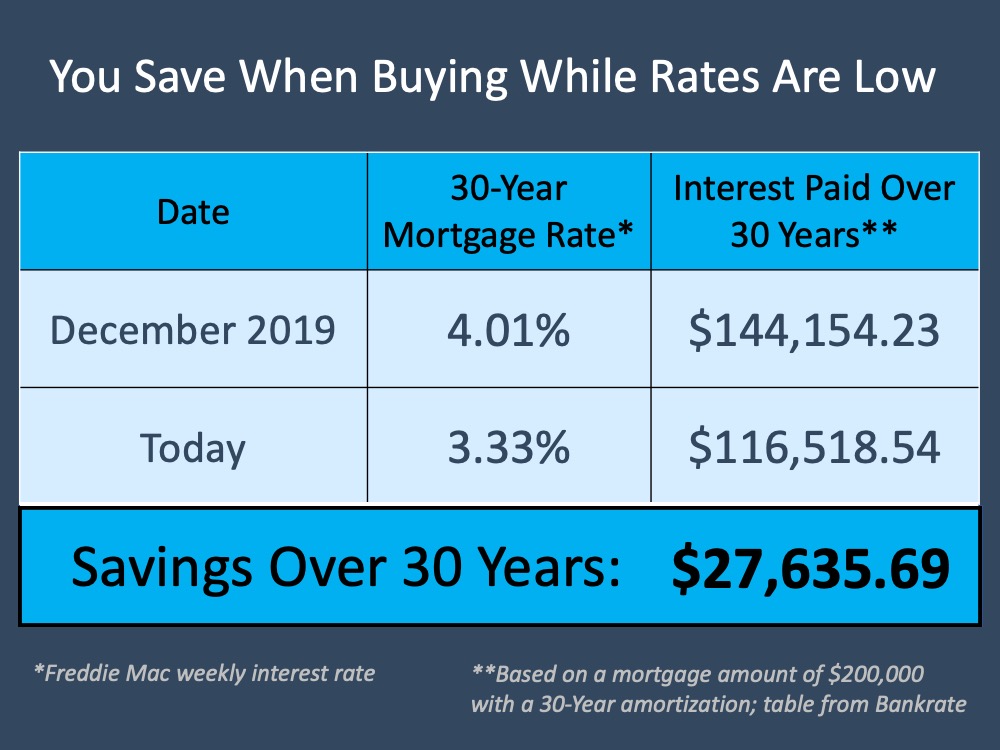


![How Technology is Helping Buyers Navigate the Home Search Process [INFOGRAPHIC] | MyKCM](https://desireestanley.com/files/2020/04/20200417-MEM-Eng-1046x1308.png)
![How Technology is Helping Buyers Navigate the Home Search Process [INFOGRAPHIC] | MyKCM](https://files.mykcm.com/2020/04/16133213/20200417-MEM-Eng-1046x1308.png)


![10 Steps to Buying a Home [INFOGRAPHIC] | MyKCM](https://desireestanley.com/files/2020/03/20200228-MEM-EN-1046x837.jpg)
![10 Steps to Buying a Home [INFOGRAPHIC] | MyKCM](https://files.mykcm.com/2020/02/25113646/20200228-MEM-EN-1046x837.jpg)


